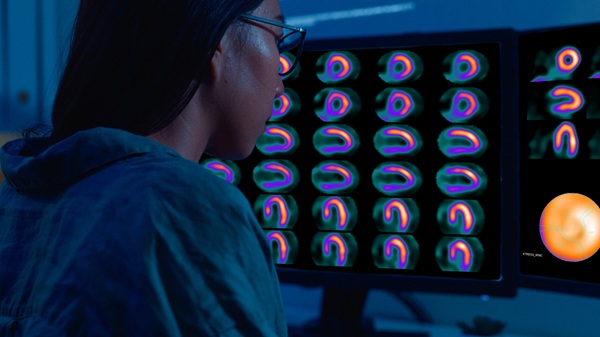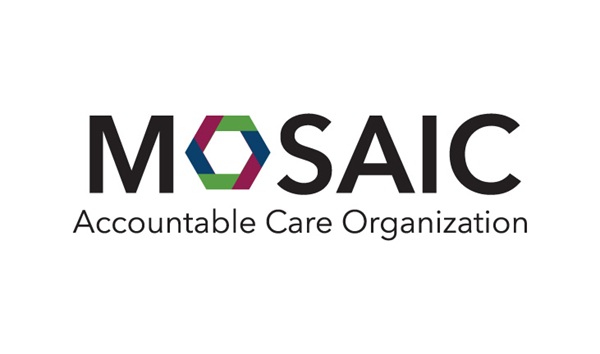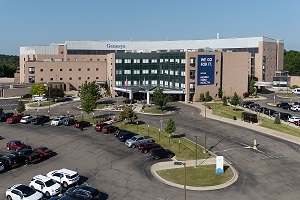Physician’s Near-Death Patient Experience Chronicled in Memoir, Inspired Campaign to Boost More Effective Communication
DETROIT – A Henry Ford Hospital physician whose near-death patient experience inspired an organizational campaign to help health professionals communicate more effectively with patients has chronicled her story in a captivating memoir.
Rana Awdish, M.D., a critical care medicine physician and director of Henry Ford’s Pulmonary Hypertension Program, describes in unflinching candor her experience as a patient on the brink of death in 2008 – on the last day of her fellowship training – when a tumor ruptured in her liver, leading to multisystem organ failure.
The book, “In Shock: My Journey from Death to Recovery and the Redemptive Power of Hope,” (St. Martin’s Press, $25.99), goes on sale Oct. 24. A portion of the proceeds will benefit physician education and communication at Henry Ford.
“As a physician I fully expected to die in the operating room,” she writes.
The care team worked frantically to save her but could not save the baby she was carrying at the time. Her two-year recovery would include five major surgeries and multiple procedures and intensive care admissions.
The transformative experience – witnessing highly-skilled, expert medical care that saved her life and delivered at times with cool indifference and lack of empathy – changed her vision of what medicine could be both for her personally and at her organization.
“Medicine cannot heal in a vacuum; it requires connection,” she writes.
In an article about her experience published in the Jan. 5, 2017 New England Journal of Medicine, Dr. Awdish acknowledged she was “privy to failures that I’d been blind to as a clinician.”
“There were disturbing deficits in communication, dis-coordinated care, occasionally an apparently complete absence of empathy,” she says. “I recognized myself in many of those failures.”
Dr. Awdish came to understand that medical training has not traditionally prepared physicians to freely embrace the emotional bond between physicians and their patients. “We were trained to value efficiency over cultivating a relationship through trust and disclosure. We weren’t trained to value the patient’s story.”
That is changing. Dr. Awdish’s experience inspired her to champion a shift in culture for helping providers prioritize compassionate, values-driven communication with their patients at Henry Ford Hospital and throughout its parent organization, the Detroit-based Henry Ford Health System. She used her experience to drive home the point to leaders and others that “everything matters, always. Every person, every time.”
Under her leadership, the Henry Ford’s Physician Communication and Peer Support curriculum was launched in 2013. Facilitators provide tools to ensure that each conversation is guided by empathy and compassion, beginning with an understanding of what matters most to patients and aligning with their values. Courses include:
- CLEAR Conversations. CLEAR stands for Connect, Listen, Empathize, Align and Respect. A course in which providers test their communication skills in stimulated conversation exercises with Detroit-based improvisational actors who portray patients and family members. It teaches how to navigate difficult questions and respond to expressions of emotion. Providers receive real-time feedback from their peers and situational feedback from the actors.
- A skilled communication workshop based on the 4 Habits of Effective Physician Communication model.
- Real-time shadowing. A trained observer shadows the provider during a series of patient interactions. Best practice behaviors and empathic communication skills are evaluated, and best practice feedback is shared during a one-on-one debriefing.
- New-hire orientation, during which employees are taught their value and purpose within the organization. Discussions emphasize learning to recognize avoidable and unavoidable forms of patient suffering. New employees are tasked with reducing avoidable suffering.
“My experience changed me,” says Dr. Awdish, who also serves as medical director of Care Experience, which directs the communications initiative across the health system. “It changed my vision of what I wanted our organization to be, to embody.”
She says her experience is a teachable moment across the spectrum of health care as the focus shifts to truly seeing patients as they are, rather than someone with an illness or disease.
“By focusing on our missteps, we can ensure that the path ahead is one of compassionate, coordinated care,” Dr. Awdish says. “When we are ashamed, we can’t tell our stories. In the wake of painful experience, we all seek meaning. It is the human thing to do, but it is also the job of great organizations. The stories we tell do more than restore our faith in ourselves. They have the power to transform.”
###
MEDIA CONTACT: David Olejarz
David.Olejarz@hfhs.org
313.874.4094
.svg?iar=0&hash=F6049510E33E4E6D8196C26CCC0A64A4)

/hfh-logo-main--white.svg?iar=0&hash=ED491CBFADFB7670FAE94559C98D7798)






